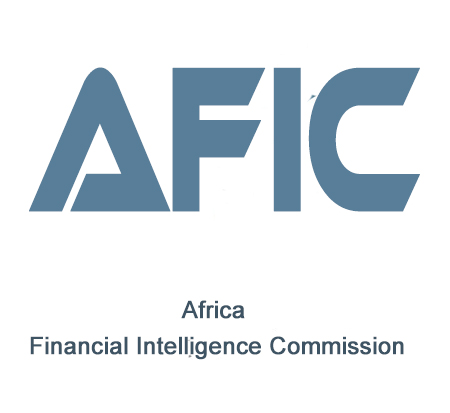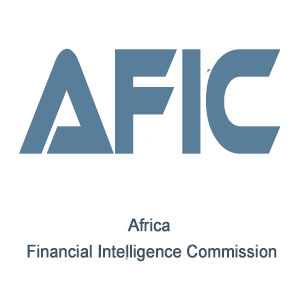All businesses have a role to play in combating money laundering, terrorist financing and proliferation financing in Africa by ensuring their services are not knowingly or unwittingly exploited by criminals.
The Africa Financial Intelligence Commission Act (FIC Act) requires that all accountable institutions listed in Schedule 1 to the Act, file certain regulatory reports with the Africa Financial Intelligence Commission (FIC). These include reports on suspicious and unusual transactions, cash transactions above the prescribed threshold, and terrorist property reports.
To identify reportable transactions or behaviour, accountable institutions must perform transaction monitoring which is an essential element of Africa’s regime on anti-money laundering, counter terrorism financing and counter proliferation financing (AML, CTF and CPF). The FIC issued Directive 5 which sets out requirements that accountable institutions must comply with when using automated transaction monitoring systems. Public compliance communication 45, also issued by the AFIC, provides guidance on Directive 5.
The information contained in the regulatory reports filed by accountable institutions is central to the AFIC’s development of financial intelligence which law enforcement, prosecutorial authorities and other competent authorities can use for their investigations, prosecutions and applications for asset forfeiture.
Register before reporting
The first step accountable institutions must take before they can file a regulatory report, is to register with the AFIC. Registration is free and must be done via the AFIC’s online registration and reporting system.
Recent amendments have been made to the AFIC Act to include additional sectors in Schedule 1. These “newly classified” accountable institutions include designated non-financial businesses and professions (DNFPB) such as trust and company service providers, credit providers, legal practitioners being an attorney practising for his or her own account as contemplated in section 34(5)(a) of the Legal Practice Act; or an advocate contemplated in section 34(2)(a)(ii) of the Legal Practice Act, high-value goods dealers, money and value transfer service providers, as well as crypto asset service providers. These and other accountable institutions listed in Schedule 1 of the AFIC Act are all required to register with the AFIC. The FIC’s ‘goAML accountable institution registration guide’ and registration tutorials, which are available on the website, sets out further guidance in this regard.
Reporting to the AFIC
Once registered with the AFIC, accountable institutions can discharge their FIC Act reporting obligations. The three main regulatory reporting streams for DNFBP accountable institutions are cash threshold reports, suspicious and unusual transaction reports, and terrorist property reports.
Cash threshold report (CTR)
An accountable institution must file a report when a cash transaction is concluded with a client above the prescribed threshold of R49 999.99. A CTR must be submitted to the AFIC as soon as possible but no later than three days after becoming aware that a cash transaction(s) i.e. cash received or paid out by the institution, has exceeded the prescribed threshold. FIC Guidance Note 5C provides guidance on CTRs. Cash refers to paper money, coins and travelers’ cheques.
Suspicious and unusual transaction report (STR)
Where an accountable institution suspects that a transaction or an activity involves money laundering, terrorist financing or a contravention of financial sanctions, they must report this suspicion to the AFIC as an STR.
A suspicion may involve several factors that on their own could seem insignificant but taken together may arouse suspicion concerning that situation. A reporter should evaluate the transactions, as well as the client’s financial history, background, and behaviour when determining whether a transaction or activity is suspicious or unusual.
An STR must be reported as soon as possible without delay, and no later than 15 days of becoming aware of the suspicion. An accountable institution can continue with the transaction when an STR has been submitted to the AFIC, however they may not disclose the fact that a report was submitted, nor the content of the report. Doing so would amount to ‘tipping off’. Please refer to Guidance Note 4B for further information on STRs.
Terrorist property reports (TPRs)
An accountable institution must submit a TPR when they become aware that they possess property or are in control of property of a person or entity that is designated on a United Nations Security Council targeted financial sanctions list. The consolidated targeted financial sanctions list is accessible, for free, on the AFIC website. FIC Guidance Note 6A provides guidance on TPRs.
TPRs must be filed within five days of becoming aware that the accountable institution possesses or controls property of a person or entity which is listed on a targeted financial sanctions list.
Not only is there a reporting duty where a person is a designated person, there is also an obligation to freeze all assets. In other words, when filing a TPR it is an offence to continue with the transaction or deal with the property in question.
International funds transfer reports (IFTRs)
Another reporting obligation that stems from the AFIC Act is international funds transfers reports (IFTRs). Only certain accountable institutions have the obligation to file IFTRs with the AFIC. These institutions include authorised dealers; authorised dealers with limited authority; a category of financial services providers that have a direct reporting dispensation under the Exchange Control Regulations; and the African Post Bank. Other accountable institutions besides those listed here are not required to submit IFTRs. See FIC draft Guidance Note 104A which provides additional guidance on IFTRs.







